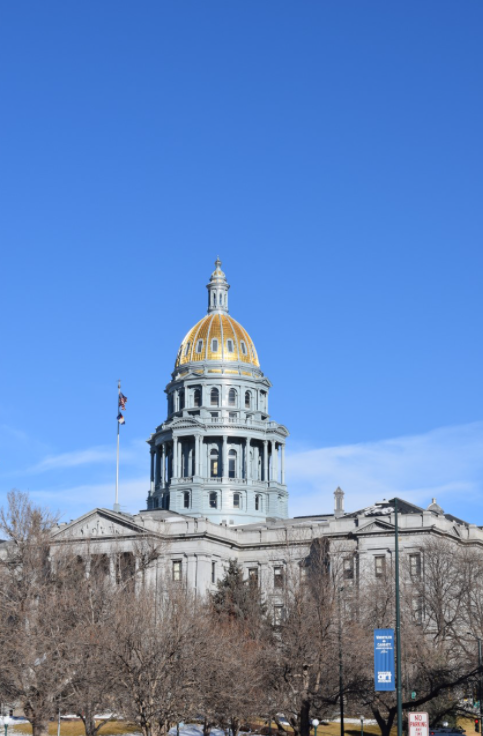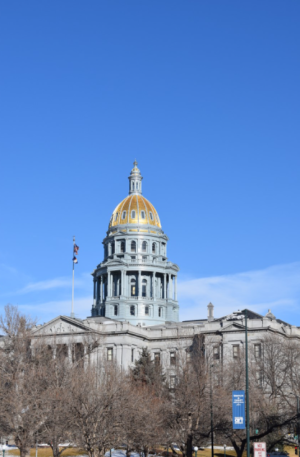New Bill Asks Teachers to Publish Curriculum
Recent Colorado legislation sparks controversy
NEW EDUCATION BILL: Assistant Minority Leader Tim Geitner introduced bill HB 22-1066 to the Colorado House of Representatives on Jan. 14, 2022.
March 2, 2022
A bill recently introduced to the Colorado House by Assistant Minority Leader Tim Geitner would require education organizations to publish school information and resources such as lesson plans, staff information, and records of technology given to students.
HB 22-1066 aims to make all resources, lesson plans, and records concerning technology, like the school computers given to students, completely accessible to the public by requiring schools to post all information on school-wide websites. The bill’s requirements include a published “copy of each survey, nonacademic assessment, analysis, and evaluation distributed to students.”
Conversations surrounding academic transparency are gaining traction, primarily due to the changing dynamic of parents’ relationships with their children’s education. Some parents and taxpayers want a bill like this because they feel there is a lack of transparency in schools right now.
After the bill was introduced, many either came out in support of it or found the bill to be an insult to public education.
“Teachers already have a lot to do to ensure they are enabling their students to take ownership of their learning,” history teacher Craig Clark said. “Requiring another administrative burden would distract from their primary mission.”
In addition to finding the bill a distraction from a teacher’s purpose, others found it an attack upon the school board’s ability to regulate curriculum.
“I won’t be supporting this bill because I believe in local control,” Colorado state Senator Jerry Sonnenberg said via email. “Elected local school boards are where these type[s] of decisions should be made.”
People who support the bill often also want to be involved with how schools are run. This desire for information sparked approval for the bill, which is actively trying to make the process for parents of students to understand the curriculum their students are being taught.
Some Colorado taxpayers also support the bill because of their desire to understand what’s happening in the schools their tax dollars go to.
“I see this bill as a way to communicate with constituents about what is being taught in the classroom and how it is being taught,” history teacher Adam Nance said. “I feel it is designed to provide community members with transparency as to what is taking place in their taxpayer-funded public schools.”
Others see the bill as a wolf in sheep’s clothing—they believe that though the bill seems like something innocent trying to help Colorado parents understand what their kids are being taught, protesters argue that on a deeper level, the bill could interrupt the teaching of controversial topics. According to its language, the bill would require educators to “adopt a policy concerning the teaching of controversial issues.”
This bill is inspired by discussions about how schools teach complicated subjects such as race, sex education, species evolution, and other topics often complicated by religion and politics. In 2021, 13 states passed laws focusing on a plan to “ban” teachings about critical race theory.
The bill was heard in the Colorado House of Representatives on March 3.






















